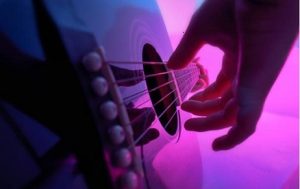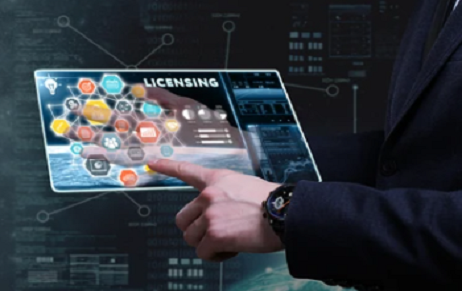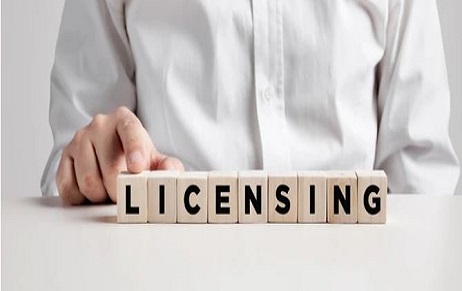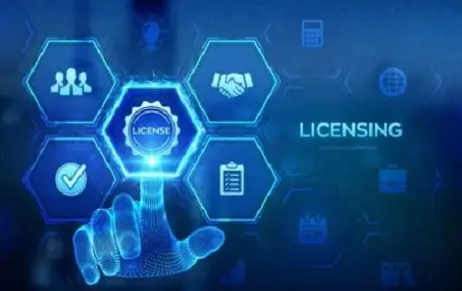Introduction A trademark helps a consumer obtain goods and services of a certain quality and reduces…
Musical Work Used Commercially And Its Licensing Requirements
You cannot play music for your employees or the public in an office or shop or any commercial spaces, no matter what the medium is (phone system, radio, and disc, TV, or Bluetooth speakers). Business organizations or Entities that are interested in having singers sing or perform in their premises for any purpose need to get a license from the Indian Performing Rights Society (IPRS). If your business conducts live performances, you must obtain an Indian Performing Right Society (IPRS) License. In addition, you could be sued for damage if you violate copyright by playing live or recorded music in public without a license.
[Picture Credit: Shutterstock]

Musical Work Used Commercially – CASE LAWS
- ISRA V. Night Fever Club & Lounge
Night Fever Club and Lounge is being sued in the current lawsuit because it arranged live performances using plaintiff’s repertoire at their location. The plaintiff, ISRA, claims Night Fever Club and Lounge violated its performers’ rights. Further, the plaintiff sent the defendant a cease-and-desist letter, requesting the “Performers Rights Clearance Certificate” from the defendant. As a result of the Delhi High Court’s order, the defendants were permanently barred from using the Plaintiff member’s songs as well as required to reveal all monies earned from using the plaintiff’s songs.
- The Indian Singers Rights Vs Chapter 25 Bar And Restaurant
The Plaintiff Indian Singers Rights Association (ISRA) alleged that Chapter 25 Bar and Restauran illegally disseminated numerous songs containing performances by members of the Plaintiff copyright society, without first obtaining permission from ISRA and paying the required royalties. The defendant had been served with a legal notice to obtain a Performer’s Right Clearance Certificate but did not respond to the notice, which prompted this lawsuit. The question which was considered was whether the performers’ and ISRA members’ rights to receive a royalty from the Defendant restaurant was being infringed? According to the Copyright Rules, ‘performance’ can also include recordings of the performing artist’s audio and visual presentation in the studio or in any other place. After analyzing the copyright act, the court turned to the exclusive rights that performers are granted, including the right to record or record visually the presentation, along with the right to “communication of it to the public”. Further, if commercial performance rights are acquired, the performer is entitled to royalties in accordance with Section 38 A (2). Besides discussing the right to receive royalties mentioned above, the Court addressed copyright societies’ right to collect royalties on behalf of their members in accordance with Section 39 A. ISRA obtained a permanent injunction from the Court, which required Defendant to provide ISRA with any proceeds earned in connection with the performance of the works performed by its members. As well, the Defendant was ordered to pay ISRA Rs.20, 000 in costs.
- Novex communication pvt. Ltd. V. Lemon tree hotels ltd.
On the basis of Assignment Deeds executed by Zee, Eros, and Shemaroo in favor of the plaintiff, the plaintiff claims ownership of the copyright work in the sound recordings. As a result, plaintiff alleges in the plaint that all of defendant no. 1’s use of the sound recordings was without a license, as a result, defendant no. 1 is liable for violating the plaintiffs copyright rights. On account of infringement, the plaintiff is also seeking Rs. 5,00,000 in damages. It is merely a legal question as to whether or not the suit through which the plaintiff claims infringement of copyright and seeks damages is barred by laws as per Section 33(1) of the Act. Plaintiffs suit seeking an injunction and damages alleging infringement of copyright is sustainable against defendant no.1 and for defendant no.1 to refrain from using the copyright works unless the defendant is licensed by the plaintiff. Basically, if a copyright society is the one who collects the licensing fee or royalties, and the copyright infringers would be at liberty to continue infringing the rights of the owners because there is no copyright society. It would also have the undesirable consequence that the first proviso to Section 33(1) and the expression “exclusive authorization” would be interpreted differently, leading to a warped interpretation. The cumulative effect of these aspects is that a copyright society need not legally be the only entity authorized to grant licenses.
- Novex Communication Pvt. Ltd. V. Hotel Sunway Manor
Similarly, The High Court of Madras granted injunction in favour of Novex against the hotel which conducted events and played music without obtaining prior appropriate licenses from Novex.
LICENSING REQUIREMENTS FOR COMMERCIAL USAGE OF MUSIC
Music must be played by valid licenses and permissions for an event, especially if live performances are to be staged. It is illegal to play music at an event unless one has a valid license from an authorized organization. Anyone failing to obtain a valid license can be sued under IPR laws. Below is some license information that has to be obtained, prior to holding an event at a venue in which music may be played.
-
PUBLIC PERFORMANCE LICENSE
It is the right to perform in public that is referred to as a performing right. Music composers/lyricists and publishers have to be paid under this copyright law when their music is performed by others. Permission to perform a song publicly, online, or on broadcast is granted with a public performance license, usually by an owner of the copyright in the composition. Performing rights, public performance rights, and public performance rights are all terms utilized for public performance permission. It is, therefore, necessary to obtain a permit before performing any song that was not written by performers. This requirement holds true no matter what part of the song is used. In accordance with the Copyright Act 1957, pre-recorded music must be played under a Public Performance License regardless of whether the establishment is commercial or non- commercial. No matter if the establishment or event is commercial or non-commercial, a license is required for pre-recorded music to be played in public places. Establishments also include Hotels, bars, cafes, gyms, restaurants, offices, shopping malls, airplanes, and taxis or non-commercial places like a college campuses for concerts, fetes, festivals, etc, licenses need to be obtained from the authorities set up by the government of India, namely i.e., Phonographic Performance Ltd (PPL). A license for the usage of literary and musical work may also be issued by IPRS (Indian Performing Right Society Limited) under Section 33 of the Copyright Act, 1957. In order to evidence rightful ownership of copyright, IPRS must be registered under the Copyright Act. According to Section 30 of the Copyright Act, IPRS is authorized to issue licenses, since members entrust IPRS with copies of their creative works in the form of assignment deeds.
-
PHONOGRAPHIC PERFORMANCE LICENSE
In essence, Phonographic Performance Ltd. (PPL) is the licensing entity that grants the right to use recorded music for broadcast on television, radio, and on mobile devices by telecommunication companies and institutions. A person who unauthorisedly plays pre-recorded music in a public location commits a non-bailable and cognisable offence. The act can be considered an offence without a license granted by the PPL. In addition to the license, the event organisers are granted freedom to use the music of other artists at the event. Additionally, Phonographic Performance Ltd (PPL) requires that each organization or company obtain a permit prior to playing background music or at events such as performances, stages, dance floors, or activities for promoting brands. Musicians who perform live non-recorded music (outside of a recording studio) must have a license from Indian Performing Right Society (IPRS). A registered artist organization collects and distributes royalties for artists on behalf of registered artist members (e.g., lyricists, composers, publishers and performers) and registers and tracks the performance of the music.
-
NOISE PERMIT
It is common to need a noise permit for events that are held outdoors. Noise in public spaces can vary from town to town, but the bulk of the cities ban loud music or other loud activities between 10pm and 8am.
-
THE NOVEX LICENSE
Zee Music, Yash Raj Films, Eros, Tips, as well as Sukhbir and DJ Nucleyas catalogues are all licensed through Novex. Even if you use music with rights to NOVEX to perform live or record, you need separate consent from NOVEX Communications to use any of the music.
-
PREMISE LICENSE
An event organizer may conduct all activities permitted at the venue with a license for the premises. Local jurisdictions are responsible for issuing such licenses.
-
Additionally in India, the following licenses are mandatory for organizing an event
- The Rangbhoomi License
- Certificate of No Objection from the venue
- Local Police Department: No Objection Certificate.
- Traffic Police: Department Certificate of No Objection
- The Note of the Police Commissioner
- Fire Department: No Objection Certificate
- Certificate from the office of the Additional Collectors, which states that there are no objections
- If the venue is a field, the Fire NOC should have a fire brigade vehicle.
- In the case of an open venue, an ambulance and doctor must be present.
- Public Works Department License
- Foreign Artist Permission
- Excise License etc
Author: Daksha Gowda S.N, a student of Ramaiah College of Law, currently doing internship at IIPRD, in case of any queries please contact/write back to us via email [email protected].



